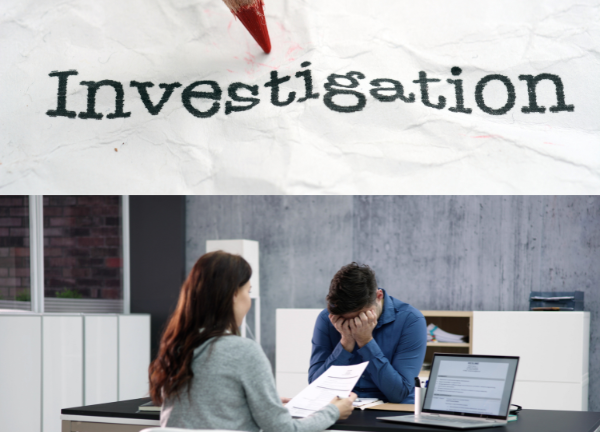Recently, I’ve noticed a worrying trend among some clients. Several have asked me for disciplinary hearing letters related to alleged employee misconduct. However, when I ask to see the investigation reports, I’m often told there isn’t one. Instead, they say the employee is simply “guilty,” and they want to proceed straight to a hearing.
This approach is not only risky but also unfair. By skipping investigations, employers undermine due process and expose themselves to legal challenges. After all, every employee deserves a fair and impartial process, no matter how clear-cut the situation may seem.
Real-Life Example: The Cost of Skipping Investigations
To illustrate, consider a recent tribunal case that highlights the dangers of rushing to dismissal. A teacher at a prestigious London school was dismissed for allegedly falling asleep in class and failing to report absences. Unfortunately, the school did not investigate thoroughly or consider his mental health conditions, which are protected by law. Moreover, they held a hearing in his absence and dismissed him without giving him a fair chance to respond.
As a result, the tribunal ruled the dismissal unfair and discriminatory, awarding the teacher nearly £170,000 in compensation. This case clearly shows why proper investigations are essential.
Why Investigations Matter
A workplace investigation plays a crucial role because it helps to:
- Establish the facts: By gathering evidence and interviewing witnesses, you can understand what truly happened.
- Ensure fairness: It gives employees the chance to respond and helps avoid bias.
- Reduce legal risk: A fair process protects your organisation from claims of unfair dismissal or discrimination.
- Maintain trust: Transparent handling reassures staff that concerns are addressed objectively.
- Comply with the law: Following ACAS guidelines reduces the risk of tribunal penalties.
Best Practices for Effective Investigations
To conduct an effective investigation, you should:
- Plan carefully: First, define the scope and appoint an impartial investigator.
- Gather evidence: Then, interview all relevant parties and review documents.
- Keep records: Next, document every step clearly to maintain transparency.
- Evaluate objectively: Make sure conclusions are based on facts, not assumptions.
- Follow procedures: Always adhere to your policies and legal guidelines.
- Take informed action: Finally, only decide on discipline after a fair process.
The Risks of Ignoring Proper Process
If you skip proper investigations or fail to follow HR procedures, you risk:
- Costly tribunal claims
- Damage to your organisation’s reputation
- Lower morale and trust among staff
- Unresolved workplace problems that may escalate
Conclusion
In conclusion, rushing to disciplinary action without a thorough investigation can have serious consequences. Therefore, employers must follow a fair, transparent process to protect their business and their people. If you need help with investigations or reviewing your HR policies, please get in touch. Taking the right steps now can save you from costly mistakes later




